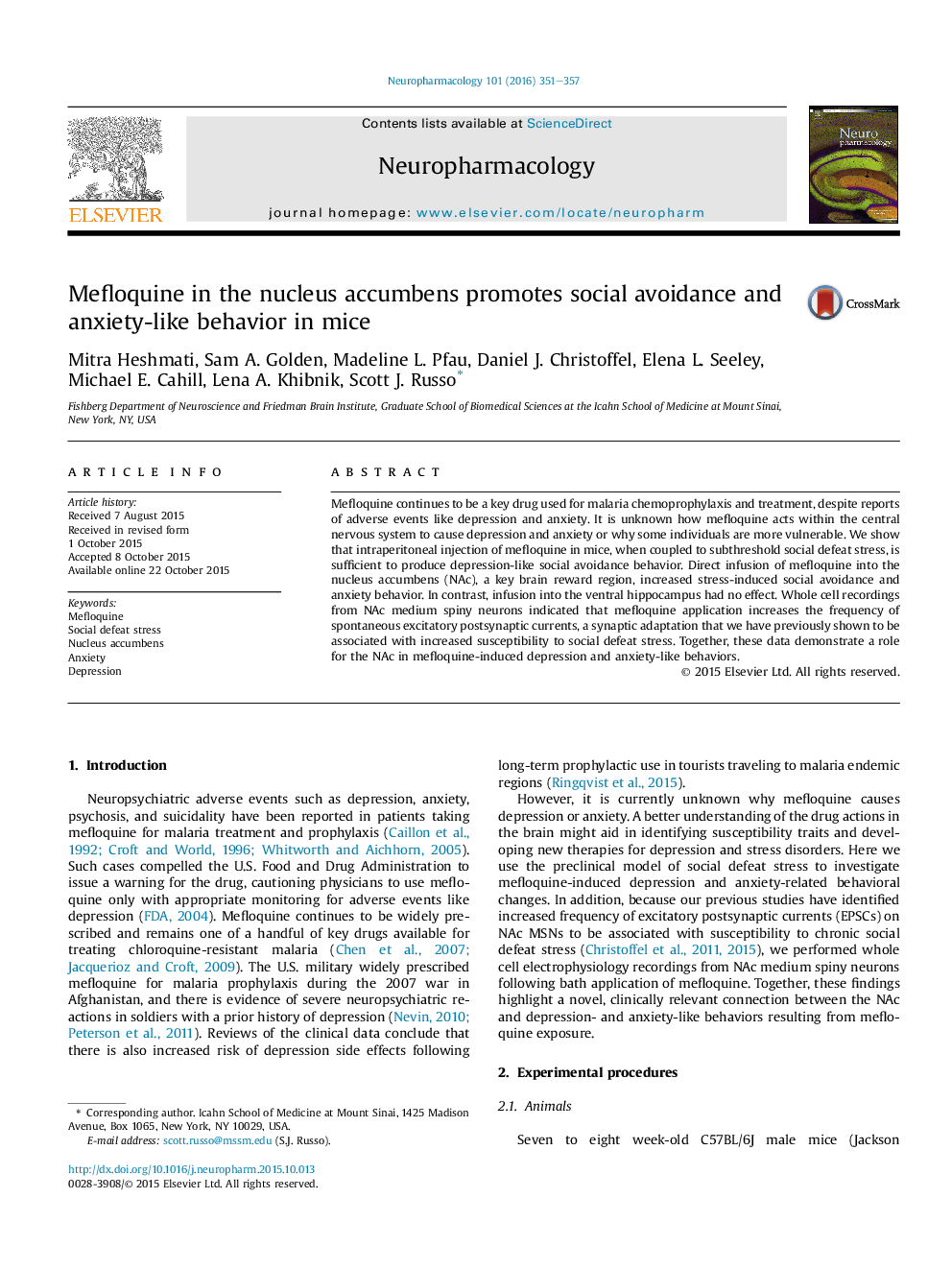| Article ID | Journal | Published Year | Pages | File Type |
|---|---|---|---|---|
| 2493126 | Neuropharmacology | 2016 | 7 Pages |
•Mefloquine coupled to social defeat stress caused social avoidance behavior.•Social avoidance and anxiety was seen after infusion into nucleus accumbens.•Mefloquine infusion into ventral hippocampus did not affect social interaction.•These findings provide a basis to study the neuropsychiatric effects of mefloquine.
Mefloquine continues to be a key drug used for malaria chemoprophylaxis and treatment, despite reports of adverse events like depression and anxiety. It is unknown how mefloquine acts within the central nervous system to cause depression and anxiety or why some individuals are more vulnerable. We show that intraperitoneal injection of mefloquine in mice, when coupled to subthreshold social defeat stress, is sufficient to produce depression-like social avoidance behavior. Direct infusion of mefloquine into the nucleus accumbens (NAc), a key brain reward region, increased stress-induced social avoidance and anxiety behavior. In contrast, infusion into the ventral hippocampus had no effect. Whole cell recordings from NAc medium spiny neurons indicated that mefloquine application increases the frequency of spontaneous excitatory postsynaptic currents, a synaptic adaptation that we have previously shown to be associated with increased susceptibility to social defeat stress. Together, these data demonstrate a role for the NAc in mefloquine-induced depression and anxiety-like behaviors.
